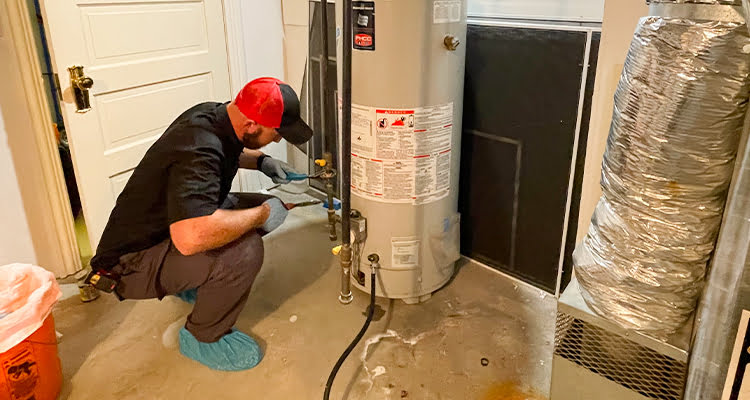Ensuring Safety In Boiler Installation: Best Practices And Regulation
March 29, 2024
March 29, 2024

Safety is paramount in heating systems, especially regarding boiler installation. Whether for residential or commercial settings, ensuring the proper setup and maintenance of boilers is crucial for avoiding accidents and ensuring efficiency. One key player in this process is the professional plumbing contractor.
These experts play a vital role in guaranteeing that boilers are installed correctly, following best practices and regulations to the letter. In this blog post, we’ll delve into the essential aspects of boiler installation safety, highlighting the importance of working with a competent plumbing contractor for a job done right.
Before installing a boiler, it is important to conduct a thorough site assessment to determine the suitability and feasibility of the location. The site assessment should include:
A site assessment can help avoid any problems or delays during the boiler installation process and ensure the boiler’s optimal performance and efficiency.
Another crucial factor for boiler installation is sizing accuracy. Sizing accuracy refers to selecting the right boiler size and capacity for the heating needs and demands of the building. A boiler that is too small or too large can cause various issues, such as:
To achieve sizing accuracy, it is advisable to consult a professional heating engineer who can perform a heat load calculation based on the building’s size, layout, insulation, windows, and occupancy.
A heat load calculation can help determine the optimal boiler size and capacity to provide adequate and efficient heating without wasting energy or compromising safety.
The quality of the materials used for boiler installation is also vital for ensuring safety and durability. The materials should be:
Some of the common materials used for boiler installation are copper, steel, brass, iron, and plastic. Each material has advantages and disadvantages, depending on the boiler type and application. Therefore, it is essential to choose the appropriate material for each component of the boiler system, such as the pipes, fittings, valves, pumps, tanks, and vents.
Also Read: Emergency Plumbing Services: What To Expect During A Service Call
Code compliance is another essential aspect of boiler installation that ensures safety and legality. Code compliance means following the rules and regulations set by the local, state, and federal authorities for boiler installation, operation, and maintenance.
These rules and regulations may vary depending on the location, type, and size of the boiler, but they generally cover:
Code compliance can help prevent accidents, injuries, and damages caused by boiler malfunctions, failures, or explosions. It can also help avoid fines, penalties, and legal actions for violating the boiler codes and standards.
Therefore, it is important to consult a licensed and qualified boiler installer who can ensure code compliance throughout the boiler installation process.
The final step for boiler installation is post-installation testing. Post-installation testing verifies and validates the boiler’s functionality, performance, and safety after it is installed. Post-installation testing should include:
Post-installation testing can ensure that the boiler is installed correctly and safely and meets the customer’s expectations and requirements.
It can also help identify and resolve any issues or problems arising during or after installation before they become serious or costly.
Jack’d Up Plumbing is a trusted and licensed firm that delivers top-tier plumbing services in Calgary. Our skilled team of plumbers is committed to providing tailored, high-quality solutions that meet our clients’ individual needs and budgets. With a focus on drain cleaning and a wide range of plumbing expertise, we prioritize excellence in serving residential and commercial properties.
For further details, please visit our website, and feel free to contact us today.